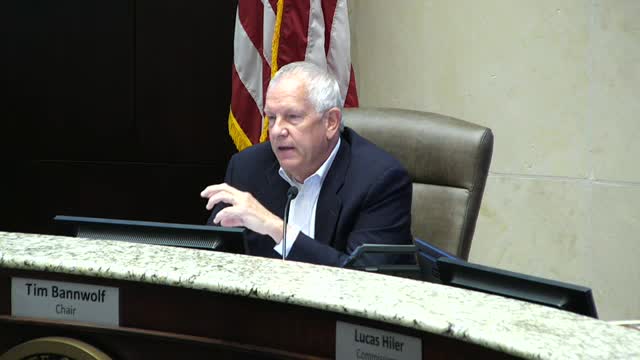Boerne Residents Voice Concerns Over Buc Ee's Rezoning and Transparency Issues
September 08, 2025 | Boerne, Kendall County, Texas
This article was created by AI summarizing key points discussed. AI makes mistakes, so for full details and context, please refer to the video of the full meeting. Please report any errors so we can fix them. Report an error »

During the recent Boerne Planning and Zoning Commission meeting, community members expressed significant concerns regarding the proposed rezoning of Buc-ee's accessory parking lot. The discussions highlighted issues of transparency, accountability, and the potential impact of the Buc-ee's expansion on local neighborhoods.
A key point raised by residents was the perception that the rezoning process lacked transparency. One speaker noted discrepancies in the public notices regarding the project, suggesting that changes to the signage had contributed to a growing mistrust within the community. This sentiment was echoed by several residents who felt that the process had not allowed for adequate public input, particularly given the project's long history and its implications for the area.
Amelia Andrews, a local resident, emphasized that the rezoning request should not be treated as a mere formality. She argued that Buc-ee's should be held to current standards regarding traffic, drainage, and neighborhood protections, especially since the project has already benefited from significant public funding and concessions. Andrews pointed out that Buc-ee's has yet to complete a satisfactory traffic study, raising concerns about the adequacy of infrastructure to support the anticipated increase in traffic.
Other residents, including Linda Plivak and Dana Mathis, echoed these concerns, highlighting the environmental impacts of Buc-ee's expansion, such as increased traffic, light pollution, and runoff issues. Mathis specifically called for a pause in the zoning reclassification until all outstanding issues, including the validity of Buc-ee's sign permit, are resolved. He noted that the special permit for a larger sign was not processed correctly, suggesting that it should be deemed invalid.
The meeting also featured calls for a more community-oriented approach to development, with some residents advocating for zoning that would support smaller, local businesses rather than large chains like Buc-ee's. This reflects a broader desire among community members to ensure that growth aligns with the values and needs of Boerne residents.
In conclusion, the discussions at the Boerne Planning and Zoning Commission meeting underscored a community deeply invested in the future of their town. As residents voiced their concerns about transparency and the potential impacts of the Buc-ee's project, it became clear that the commission faces a critical decision that could shape the character of Boerne for years to come. The commission's next steps will be closely watched by the community, as they seek to balance development with the preservation of local interests and standards.
A key point raised by residents was the perception that the rezoning process lacked transparency. One speaker noted discrepancies in the public notices regarding the project, suggesting that changes to the signage had contributed to a growing mistrust within the community. This sentiment was echoed by several residents who felt that the process had not allowed for adequate public input, particularly given the project's long history and its implications for the area.
Amelia Andrews, a local resident, emphasized that the rezoning request should not be treated as a mere formality. She argued that Buc-ee's should be held to current standards regarding traffic, drainage, and neighborhood protections, especially since the project has already benefited from significant public funding and concessions. Andrews pointed out that Buc-ee's has yet to complete a satisfactory traffic study, raising concerns about the adequacy of infrastructure to support the anticipated increase in traffic.
Other residents, including Linda Plivak and Dana Mathis, echoed these concerns, highlighting the environmental impacts of Buc-ee's expansion, such as increased traffic, light pollution, and runoff issues. Mathis specifically called for a pause in the zoning reclassification until all outstanding issues, including the validity of Buc-ee's sign permit, are resolved. He noted that the special permit for a larger sign was not processed correctly, suggesting that it should be deemed invalid.
The meeting also featured calls for a more community-oriented approach to development, with some residents advocating for zoning that would support smaller, local businesses rather than large chains like Buc-ee's. This reflects a broader desire among community members to ensure that growth aligns with the values and needs of Boerne residents.
In conclusion, the discussions at the Boerne Planning and Zoning Commission meeting underscored a community deeply invested in the future of their town. As residents voiced their concerns about transparency and the potential impacts of the Buc-ee's project, it became clear that the commission faces a critical decision that could shape the character of Boerne for years to come. The commission's next steps will be closely watched by the community, as they seek to balance development with the preservation of local interests and standards.
View full meeting
This article is based on a recent meeting—watch the full video and explore the complete transcript for deeper insights into the discussion.
View full meeting
